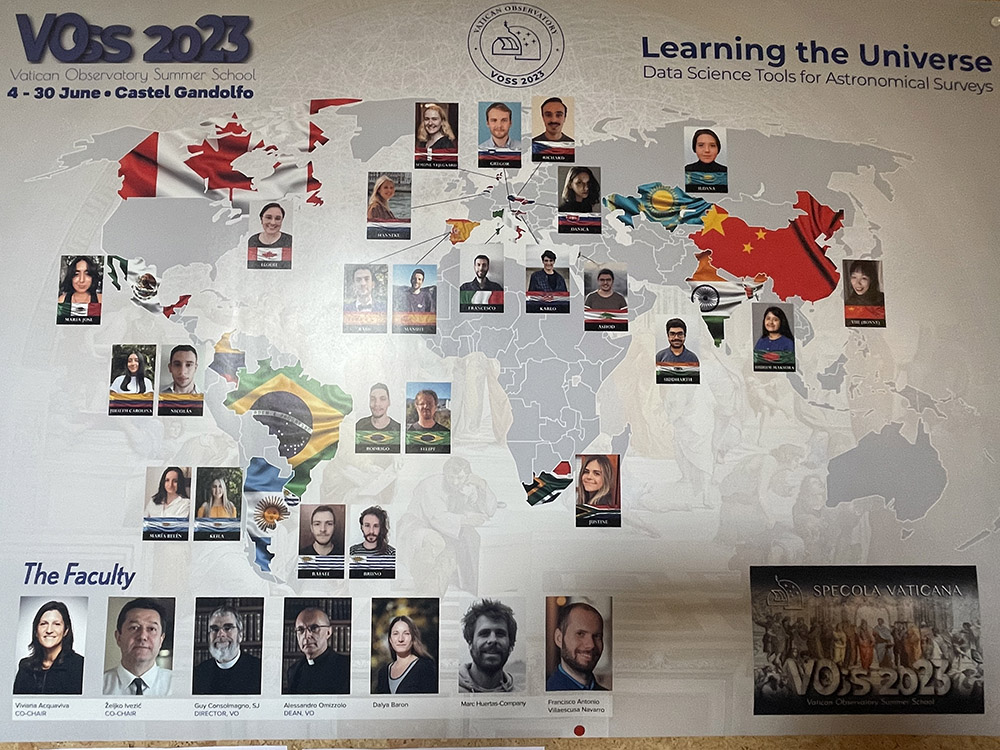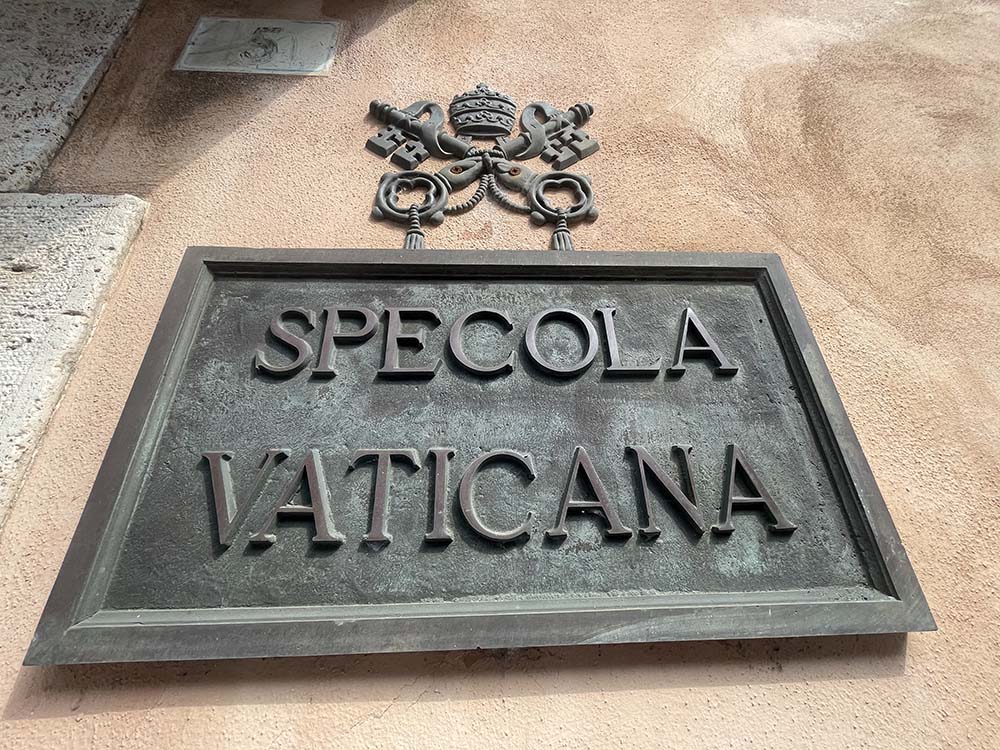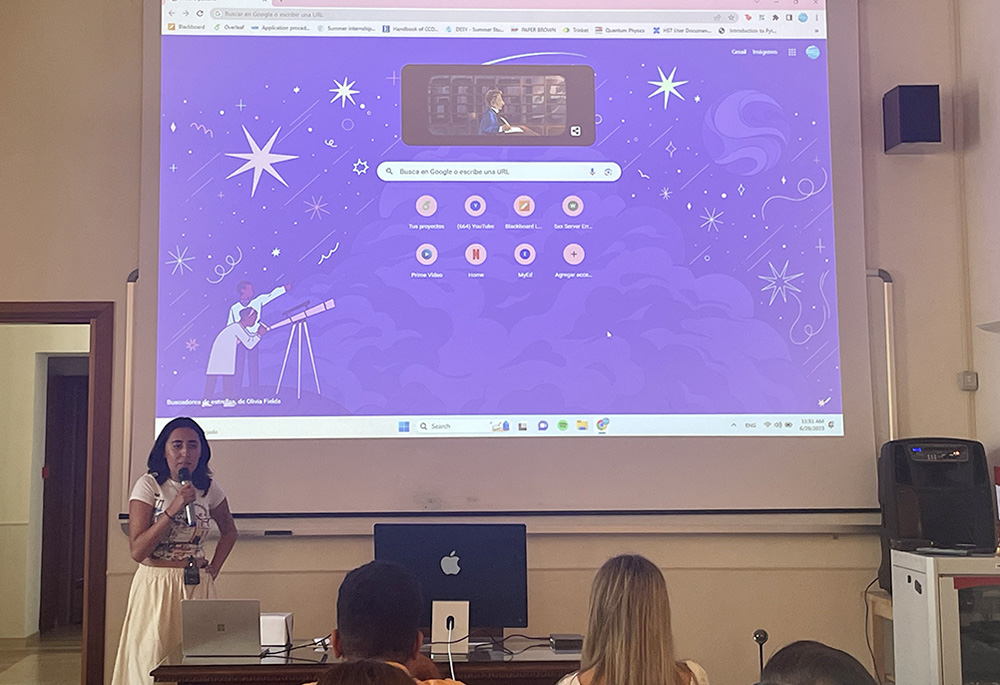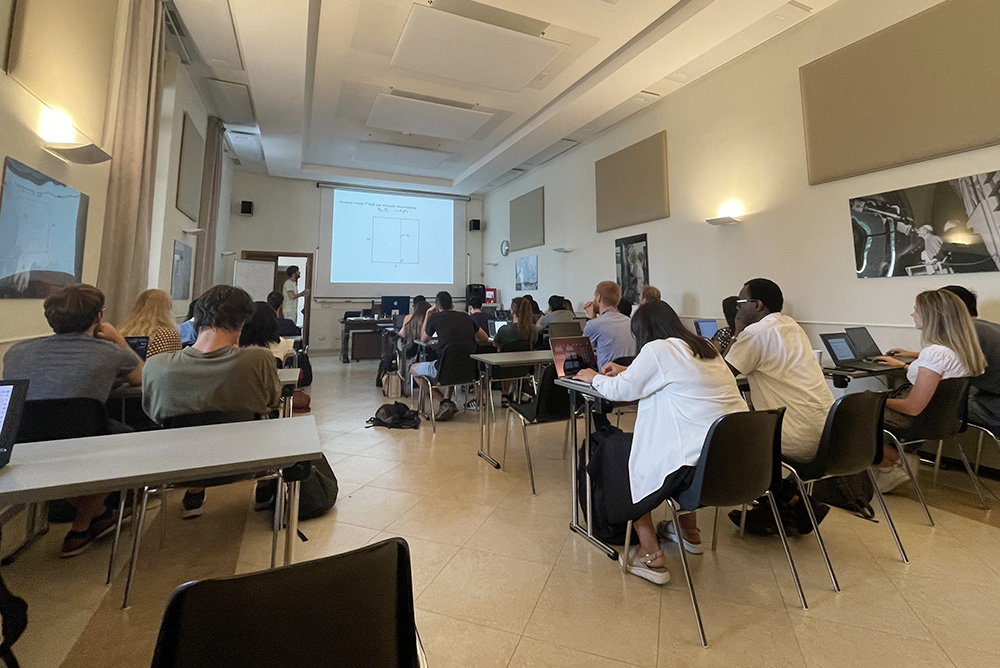
A map of the 27 students representing 20 countries participating in the 2023 Vatican Observatory Summer School (EarthBeat photo/Christopher White)
Despite the wild ambitions of serial entrepreneur Elon Musk's space tourism resulting in more environmental pollution and his satellites making the work of astronomers more difficult, the goal of the Vatican Observatory's annual summer school isn't exactly to produce a new generation of anti-Elon Musks.
"When I think of people like him," says Jesuit Br. Guy Consolmagno, who directs the observatory, "and other people who are rich and powerful, I think of King David."
"King David was the great king of Israel who did so many marvelous things. But ultimately, ego got in his way."
On a recent visit to the Vatican's Observatory, just 15 miles outside of Rome and overlooking Lake Albano, the 70-year-old Consolmagno wasn't at all combative when talking about Musk and other billionaires who not only seek to "maximize" understanding of the universe, but seemingly want to control it, as well.
"This happens," Consolmagno told Earthbeat. "We all wish that people using space to put up constellations and satellites would be more aware of the fact that space isn't just theirs, it belongs to everybody."
Instead, for Consolmagno, the aim of an annual summer school for aspiring astronomers is to provide an environment for young students to "be comfortable being who they always were" and with a common desire to work together in realization that "you can't do astronomy alone."
The idea of the summer school was the brainchild of Jesuit Fr. Martin McCarthy, who founded it in 1986 with the idea to bring young people together at the observatory's headquarters to encourage their academic studies of the cosmos.

Entrance to the Vatican Observatory headquarters in Albano Laziale, about 15 miles outside of Rome (EarthBeat photo/Christopher White)
"Unlike academic institutions, we have no official alumni," Consolmagno explained. "Our summer school students are our alumni. They are our family."
Today, there are some 500 alumni of the annual four-week summer program and among their number are some of the leading astronomers in the world. Despite being sponsored by the Vatican Observatory — which covers the full tuition costs and subsidizes travel — religion plays no role in the competitive selection process, which aims to specifically recruit from the developing world.
"We're not proselytizing, we're not preaching," said Consolmagno. "What the summer school does do, it reassures everyone who comes with their own sense of idea of morality, correctness, religion or faith or whatever it might be to encourage them that they're not alone and that there's a common commitment to truth."
Advertisement
While students were scheduled to meet with Pope Francis, his hospitalization in June prevented the in-person encounter. In a letter written to the summer school participants, however, the pope underscored the point that pursuit of scientific truth was shared the world over.
"The immensity of the universe has always been a source of wonder for humanity," wrote Francis.
"Perhaps the most amazing thing about this universe is that it contains creatures like us, men and women who possess the ability to observe it with wonder and to 'interrogate' it," he wrote to the 2023 cohort.
During this year's program, which ran the month of June, 27 young scholars (from recent undergraduates to doctoral students) from 20 countries gathered for daylong seminars on the theme "Learning the Universe: Data Science Tools for Astronomical Surveys."

A student from the 2023 cohort at the Vatican Observatory Summer School presents to other students on June 29. (EarthBeat photo/Christopher White)
Jesuit Fr. Williams Dhelonga of the Democratic Republic of Congo, told Earthbeat that the highlight of the program had been the encounter of people and cultures from all over the world.
Dhelonga, who is working on a doctorate in applied mathematics in Belgium, said, "The competencies I am learning here will help me help the world."
Julia Carolina Alvardo from Colombia said she had been surprised by how, despite the number of countries and backgrounds represented, "it's amazing how we understand each other so well."

Students from the 2023 cohort at the Vatican Observatory Summer School listen to a lecture on June 29. (EarthBeat photo/Christopher White)
"The reason we are here is because of science," she said, adding, "It's more than the academic experience. The faculty really care about us a lot."
Faculty teaching in the program are recruited from all over the world, with Consolmagno noting that proposals from the faculty to bring up their own research topics are often as fierce as the competition from the students vying to be accepted for the summer school.
And for Consolmagno, the relationship with the students is a two-way street.
"They bring enthusiasm and knowledge of cutting edge science," he said. "They remind us of why we wanted to do this in the first place. It's for the sheer joy of looking at the stars and understanding and coming up with the next questions."








